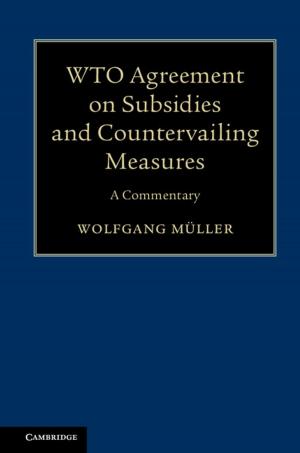Explaining the European Union's Foreign Policy
A Practice Theory of Translocal Action
Nonfiction, Social & Cultural Studies, Political Science, Government, Social Science| Author: | Magnus Ekengren | ISBN: | 9781108395090 |
| Publisher: | Cambridge University Press | Publication: | September 30, 2018 |
| Imprint: | Cambridge University Press | Language: | English |
| Author: | Magnus Ekengren |
| ISBN: | 9781108395090 |
| Publisher: | Cambridge University Press |
| Publication: | September 30, 2018 |
| Imprint: | Cambridge University Press |
| Language: | English |
The European Union was created for the purpose of encouraging peace on the continent, but today is increasingly active globally in areas such as diplomacy, development, humanitarian and consular aid, and civilian and military crisis management. Yet we know little about the forces that drive the Union to interact, influence and intervene outside its borders. This book offers a new theoretical perspective that explains how EU collective action is driven by practice, such as diplomatic routines and crisis management procedures. Using global case studies, Ekengren shows how the EU's representatives perform these routines, or transnational practices, across particular 'locales' around the globe, from Kosovo to Haiti. By connecting transnational and local forces in the explanation of EU foreign policy action, he presents an outline of a practice theory of translocal action. Scholars, policymakers and journalists will find this theoretically ground breaking book essential in understanding the European Union's foreign policy.
The European Union was created for the purpose of encouraging peace on the continent, but today is increasingly active globally in areas such as diplomacy, development, humanitarian and consular aid, and civilian and military crisis management. Yet we know little about the forces that drive the Union to interact, influence and intervene outside its borders. This book offers a new theoretical perspective that explains how EU collective action is driven by practice, such as diplomatic routines and crisis management procedures. Using global case studies, Ekengren shows how the EU's representatives perform these routines, or transnational practices, across particular 'locales' around the globe, from Kosovo to Haiti. By connecting transnational and local forces in the explanation of EU foreign policy action, he presents an outline of a practice theory of translocal action. Scholars, policymakers and journalists will find this theoretically ground breaking book essential in understanding the European Union's foreign policy.















